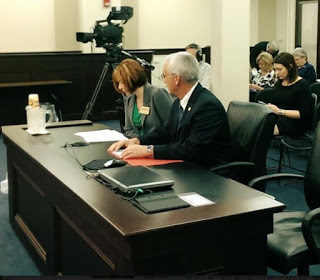I just wrote a blog post for JAMANews Forum on the closure of rural hospitals. It describes why they close and discusses policy responses that could ensure that these hospitals are able to promote the health of their communities in myriad ways, not just by providing acute care services.
As it was being posted, Trump released his proposed budget. If passed, it will accelerate the loss of hospitals in rural communities. When hospitals close, it severely impacts the economic survival of rural communities. The proposed cuts will not “make America great again.”
According to USAToday:
White House Budget Director Mick Mulvaney said it is a taxpayer-focused budget that seeks to help those who really need government assistance while nudging others who need to “get off of those programs” and “get back in charge of their own lives again.” The budget would also make room for tax cuts estimated to cost $6.2 trillion over 10 years, with more than three-quarters going to the top 20% of taxpayers.
But various sources are weighing in to counter the rhetoric that the budget cuts are in the interests of taxpayers in rural America.The proposed budget will damage the health of rural communities in a number of ways. Here are three:
- It will slash Medicaid funding beyond the cuts already proposed in the House-passed American Health Care Act. Some rural areas will be the hardest hit. Rural areas have lower household income levels and higher rates of poverty than urban areas. The expansion of Medicaid under the Affordable Care Act (Obamacare) helped poor men gain health care coverage for which they had previously been ineligible.
- It will eliminate telehealth funding. Telehealth is crucial to linking rural communities to specialty services. In my JAMA blog, I noted that the survival of rural hospitals in dependent, in part, on being part of a larger health system that has the specialty services, as well as intensive care. Telehealth enables rural hospitals to remotely access specialty services, including consultations on emergency care. Nurse Kristi Henderson, DNP, RN, FAAN, recognized this years ago when she built TelEmergency, an emergency telehealth service through the University of Mississippi to the remote and underserved rural communities of the state.
- It would reduce or eliminate other federal grant programs that help rural hospitals to survive. Rural hospitals have a very thin operating margin, so even small reductions in funding can cripple them and lead to closure. In addition, the budget would slash funding for the state offices of rural health, undercutting communities’ efforts to monitor and address the impact of cuts on health.
Lots of political commentators are pointing out that Trump’s budget would hurt most those who voted for him, including people in rural America. It’s up to Congress to pass a budget. What they pass will determine whether these communities will die or thrive in Trump’s America.







Susan Luck / May 26, 2017
Thank you for this blog on rural healthcare.
The current proposed budget will not only impact rural hospitals and health care but urban hospitals and vulnerable populations.
Yesterday, in the Miami Herald, there was a report on layoffs at the University of Miami Hospital. The article went on to state,
” Like other Florida hospitals, UM Hospital faces financial questions with the state slashing Medicaid payments and Congress proceeding with a repeal of the Affordable Care Act that is projected to leave 24 million Americans uninsured over the next decade — sticking hospitals with more uncompensated care.
In a May meeting with the Miami Herald’s editorial board, Frenk and Altschuler said UHealth needed to adapt to those challenges but also to take advantage of other changes in healthcare, including the shift away from overnight hospital stays to outpatient care in community clinics.as well.”
My commentary:
Nurses working in community and public health need to raise their voice and advocate for services needed in their communities.
Part of this focus is on advocating, organizing and empowering individuals, families, and communities through education and coaching models focused on prevention and health promotion strategies.
/